Clancy Tucker's Blog, page 217
July 5, 2016
6 July 2016 - THE TRUTH REVEALED - Guest Post from Kim Wheeler
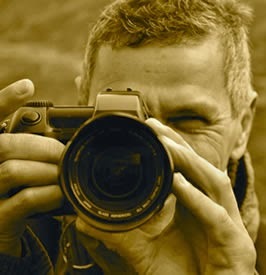
THE TRUTH REVEALED- Guest Post from Kim Wheeler -
G'day folks,
Many of you might identify with my guest today. I certainly do. So, who is Kim Wheeler you ask? Kim is a published author, brilliant photographer and dog rescuer. He is also a good friend of mine. What he has to say today reminds me of my mother's search for her own mother for many years. Take it away, Kim ...
THE TRUTH REVEALED…In search of a birth mother…..
One evening, bored and still looking for answers I decided that I would look for my old children’s home/nursery. I remembered the name of the road was Ladywell Road, but sadly not the number. So I used Google map and found myself looking down a road that for some strange reason, thought that I might remember. I didn’t, of course I didn’t. No signs of children’s home or nursery just rows and rows of shops and three bed roomed semis. I googled for children’s homes and soon found a number 82 Ladywell Road, Lewisham. I again searched Google map, found number 80 and found 84, sadly no 82. ‘That’s odd.’
This then took me to the national archives, unsure how but that’s where I ended up and soon I was filling out forms to my many unanswered questions. I was informed that the children’s home/nursery was once a workhouse but had since been demolished but I could ask for some photos. ‘Yes,’ I asked and within a few days my email had a letter with five photographs. I had found the nursery and what a grim, cold, barren place it was. There were two photographs of the exterior. It was huge and more than one building. One photo showed the toilets with tiny sinks and toilets with no doors. One photo was of the dormitory and a series of caste iron cots and one photo was of a playroom and all were beyond depressing, I guess it didn’t help being in black and white but even so, what a cold place to live. There were no pictures on the walls, no drawings drawn by happy contented children. There was nothing, but cold, grim lifeless and barren.
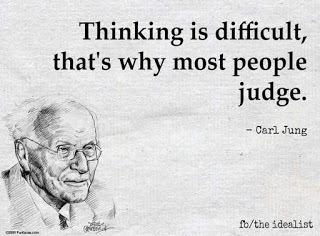
I was told I could purchase these photos, ‘No thanks,’ I whispered. I wanted to find out more, but not about this dump but more about what happened to me while I was incaserated. I was directed with help from a few phone calls and soon I was talking to Janice O’ Rorke who helped with all my enquiries. I was told I would have to wait a few weeks to get all the paperwork. Some weeks passed and I being ever so slightly impatient, rang Janice up who explained that she had the documents and was about to send them off to me. I really wanted to speak face to face so asked, ‘could I come up?’ and it was hastily arranged that I would drive up to the London archives in EC1R, the very next day.
The journey was one I had driven many a time but not for a very long time, same A40 and same Marylebone flyover, just alot more traffic. I reached my destination just in time to the heavens to open with a deluge of epic proportions and of course got soaked to the skin. I arrived and met with Janice who still clutching a large brown envelope shook my hand and made our way through the silent library of people tapping away while staring at computer screen after computer screen in silence. We walked into a small office where we began to open file after file.
What we saw, read and then discussed at some length was far from what I was told as a child, and the story was not a good one. We slowly but surely pieced the parts of this broken jigsaw together and what I was told and what was told about me, was false.
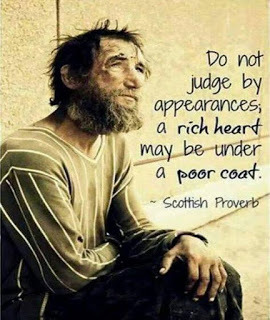
I know my adopted Mother would have told almost anyone who would listen all about my birth father. This of course had a serious and detrimental effect on my life but remember she wanted to adopt a non white child and as you are aware, she also changed my name to Kim from the book of the same name by Rudyard Kipling. I, even at the young age I was didn’t believe this story to be true. I didn’t care so much about the names called (though when accompanied with aggression, clenched fists and the word fucking used before tha racist rants, it did) but what it did do is made me feel different to everyone else as all I wanted to do was fit in, not forgetting I had just spent five years of my childhood in a very bleak, harsh and cold environment where I was called some really horrible names, and had real issues with a fear of strangers, institutionalisation and various other choice issues. So for the entire time I was at school I was abused with racist name calling. I took it for a while but when you are constantly provoked and already have a volatile nature there was only going to be one outcome and I exploded time and time again, which in turn caused only me more grief.
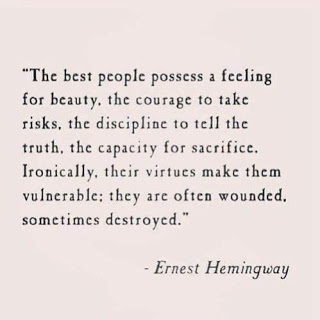
I was trapped. So what was the truth? My birth Mother did get pregnant, obviously but used any means possible to get her out of the mess she had found herself in, i.e. pregnant, single and now homeless. The man she claimed to be the father was in fact living with another woman and all she was doing was trying to put the blame firmly on his shoulders so he would pay towards the child, simple really and my adopted Mother would have had access to the same documents that I was now reading with Janice. It appears my birth mother had lied a lot about marriage, fathers and boyfriends to anyone who she felt would listen and perhaps help, and went from one bad relationship to another and more unwanted children. I then began to feel real empathy/sympathy but also extreme anger at my adopted Mother. ‘Why?’ was my initial reaction when here it was in black and white that this man was not the father and birth Mother had just tried in vain to get help. We read that my birth mother was ‘very attractive, with dark brown eyes, frizzy hair and a sallow complexion,’ (with the word Negro? in brackets) seems I shared something with my birth Mother as I obviously had the same eyes, sallow complexion.
I felt sad as I drove home through the busy traffic of London but I also felt anger and this is why. All my adopted mother had to do was tell the truth as it was written, i.e. my mother had quite dark skin and my father was unknown. I am English and born in London, that would have saved me from years and years of abuse, fighting, arguing and rage that I really didn’t need. By making me into this freak of her dreams, also made my life hell and that made me seethe. I can’t change the past can I? But at least now I know the truth.
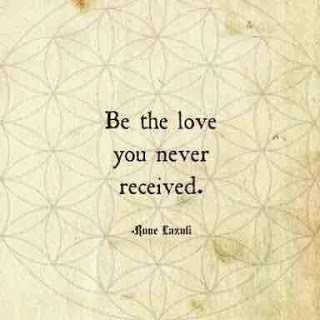
So back to the computer and the search continued to see if birth mother was alive or dead and if dead, where, when why etc etc.
I joined the online site Ancestry and started putting in all I now knew, and with yet another married name for my birth mother a picture began to unravel. I found I had a half brother, I already knew of a half sister and I also found out that my half brother had died aged forty four of cancer, my grandfather also died of cancer and my Mother had died aged forty four of an overdose. I found out that my half sister had stated that, ‘the best thing that ever happened to her was being abandoned by her mother,’ yes, my mother. I found out that she was no stranger to the long arm of the law and spent time in prisons. I found out that the Hunter clan were troubled not only to others but also to themselves. Did I really want this search to continue? No I did not. So I thanked my new found cousin Tracy for her help and honesty and I decided that the end of this long arduous somewhat painful journey of discovery would soon end. I will at some point go to my Mother’s grave and purchase her a suitable headstone, lay some white flowers, say ‘hello and wave goodbye.’
I then thought about the grim, grey unloved time spent in the shithole of a nursery and how it had affected my early years, the fear this child had to endure was undeserved and wrong. I thought about how I was picked due to my adopted parents wanting a non white child and being unwanted by so many because of my non white status. I am more than a colour, right?
I then thought about the massive change in my situation, from the deprived life to a new one many miles away, with parents and new siblings, the new schools and surroundings, it was heaven in comparison and although overtly strict it was better than where I had been and better away from birth Mother who only had time to have unwanted children and to cause damage to not only herself but to those around her. I looked at my adoption and life in a clearer light. I was and am a whole lot more appreciative of my life and those around me who helped me grow, yes there were terrible times but that’s life, isn’t it?
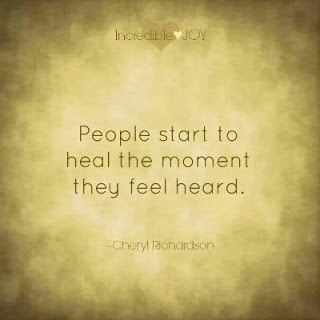
One thing that I do find hard to understand is where I got life right and how I became this person I am now, today, to me that's the miracle to endure all the aforementioned pain, abuse and sufferings to become somebody I like and also a man my friends like. Would I change this life? I hear you ask, probably not because of what I have become without really anyone I became a survivor of life and still am. I have what I need, food, water and shelter and most importantly I am able to forgive all the hurt and still be able to love. There is no one I would rather be, so if your parents have somehow failed you by not giving enough maybe not leaving you thousands of pounds in their will, or not spending enough time and money on you and yours remember this, you were lucky to have them, probably more lucky than you realise.
So before you enter into the search for lost family remember it doesn’t always end up like it does on the TV series ‘Long Lost Family’ with the patronising toothy grin and inane wittering of Davina Macall as she asks sarcastically, ‘would you like to see a picture?’ No Davina I would not.
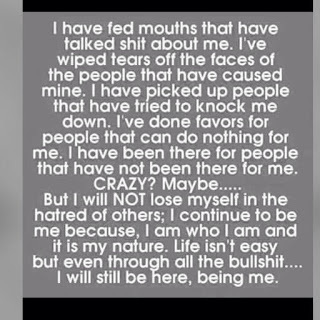
I near my sixty-second birthday and at last I can be free of the past and understand more about life than most people reading this. The scars have finally healed..I took a look at myselfWhat did I see?Invincible and vulnerableThe reality I feelIs also the disease in me.
Ah, well done, you didn't give up halfway, thanks for staying the course. I was asked how I felt about all the above
1) Angry with birth mother?? NO!
2) Angry with the lies by adopted mother?? YES
3) Are you happy you took this journey into the past?? YES
4) Were you sad?? A little
5) How did you feel when you found out your birth mother was a prostitute?? Nothing but pride, we all have to survive, right?? I have seen bigger, uglier whores in government.
6) How does it feel to have blood relatives after not knowing for almost 62 years?? Good
7) Are you angry or upset in anyway?? NO...I have a life and irrespective of the trials and tests, pains and misfortunes, I was given a life and for that gift I am happy, perhaps it's why I am so humble and dislike the greed and self importance in humans lately. We have life, food, water and shelter, believe me when I say, everything else is a bonus including having parents, be grateful...
8) So where are we now??...See below........
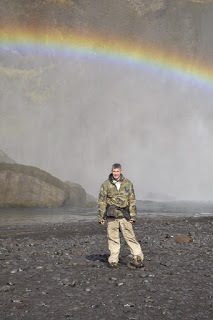
ENLIGHTENMENT...
The mark of a successful man is one that has spent an entire day on the bank of a river without feeling guilty about it.
This piece is for those of us who have been plagued by suffering and have so often wondered, why me? What did I ever do wrong? Why does my God hate me so?
Two years ago, I was sitting next to a flowing river; the sun was shining on a beautiful English summer’s day. I was with my two rescued dogs, Bigfoot and Little bear who were busying themselves in play. I took my shirt and shoes off and then dangled my aching feet into the cold flowing water. I had water to drink and fresh fruit to eat. I smiled not just for a few moments but what seems ages, I just could not stop smiling. I had in my eyes and after an extremely long journey of self healing achieved what I had set out to become so many years before when I was a broken shell of a man full of pain and anger. I had at last become a contented man and a contented man with nothing and I mean nothing. No huge bank account, no flashy car or many homes, no wardrobes full of unworn clothes and shoes to adorn my body, Just me, my memories and my belief in a better self.
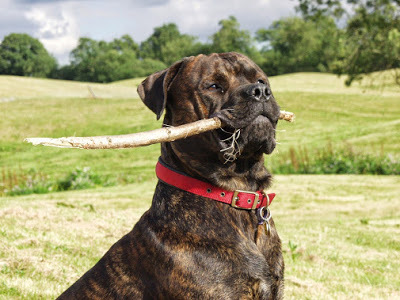
I reflected on the abuses meted out during my formative years, on the anger and the volatile nature of my soul. I thought about the amount of pain and suffering I had to endure, all down to the hands of others. I wrote in my book Battle Scarred Journey about just some of these abuses and the feelings of rage towards my perpetrators. I also wrote about forgiveness, not because I was told to by God, Jesus or any other wise prophet. I learnt to forgive as this was the only route to enlightenment because to hold the pains inflicted by others means I was also holding their pain, which I will not do. They were wrong to carry out such heinous crimes, but it is they that have to live with themselves. I simply refuse to and when I realised that I don’t have to carry the odious suitcase of suffering forever, I began to feel better about myself and less concerned about the illness in the perpetrators and believe me, being an abuser is an illness and an illness that needs to be cured. There is no self loathing as some have suggested.
I have never felt or believed I was a victim; I refuse to be anyone’s victim. My book was about life, my life and if you cared to read between the lines, it’s about how little we care for each other and the gross neglect of a dreadful society and government. I have never sought sympathy and dislike the reams of rhetoric that spews forth from the mouths of the simple who want to justify an illness by punishment. You don’t put an angry dog in a cage and expect the anger to disappear, so why rather than help the sick do so many want to beat, stab, castrate and hurt the mentally ill.
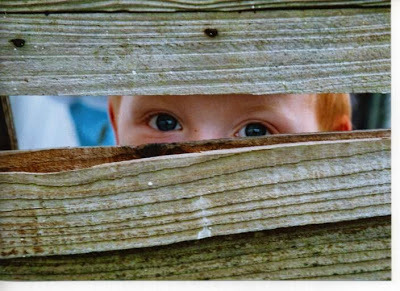
I recently had the misfortune of making an honest comment on an idiot’s page (LinkedIn) who hated my ability to see through the crime and instead of an eye for an eye mentality, try to understand, help and learn to forgive. I forgave all my abusers and there were many. Yes, my abusers were wrong to abuse me, but to be unforgiving and spiteful did not help me become enlightened, because you will just become part of the thug mentality of the baying crowd. So dislike me for saying a sick man needs help but the truth is this, you will never reach any enlightenment until you can be open minded and not negatively deformed like some of the people and their vitriolic screaming of hate.
I have learnt many important lessons in life and there in those few words are in truth, the crux of the matter, is learning to forget and not be beaten down by the weakness or sicknesses of others.So hating my abusers and wanting to hurt them back had in truth, only achieved one thing. I was brought crashing down to the level of the sick and I, I am better than that.

KIM WHEELER
I wrote a review for Kim’s book, Battle Scarred Journey. Little did I know it would be printed on the back of the book, and for that I’m grateful. Here is what I wrote:
‘Battle Scarred Journey’ by Kim Wheeler – A review by Clancy Tucker.
I have not known Kim for long, but we have become very good mates, though we live 12,000 miles apart. We connected via social media and he became a guest on my daily blog; one of my better decisions as an author and blogger. His book, ‘Battle Scarred Journey’ , is a powerful insight into one man’s life. It is sensitive, raw, passionate and courageous. This book should be mandatory reading for anyone who has had a precious childhood. And, it could easily be used as a text book for any students studying medicine, nursing, psychology and social work.
What did I appreciate most about this book? Well, it is well written and easy to follow, and I sensed his pain and could feel the courage it took to write such a document. For that, I have nothing but admiration. Kim has mastered my first rule in writing – retain your own voice. Life can really suck sometimes, but we must not allow it to suck us in. Kim has battled against the odds, climbed above the froth of life and done himself proud. I sincerely hope his book hits the big time. It is certainly worthy of recognition. Trust me. Kim Wheeler will become a household name. His exceptional style of writing is up there with the biggies. Love ya work, Kim … Love ya work!
Clancy Tucker - Storyteller, author, publisher, photographer, sometime poet, social justice activist and Human Rights campaigner.

Clancy's comment: Thank you. Love ya work, Kim!
I'm ...






Published on July 05, 2016 14:22
July 4, 2016
5 July 2016 - WISE QUOTES

WISE QUOTES
G'day folks,
Welcome to some interesting quotes.
What saves a man is to take a step. Then another step. It is always the same step, but you have to take it. ~Antoine de Saint-Exupéry, Wind, Sand and Stars, 1939, translated from French by Lewis Galantière
Don't wait for the Last Judgment. It happens every day. ~Albert Camus, The Fall, 1956
Good for the body is the work of the body, and good for the soul is the work of the soul, and good for either is the work of the other. ~Henry David Thoreau
Remember, if you’re headed in the wrong direction, God allows U-turns! ~Allison Gappa Bottke
Anyone can carry his burden, however hard, until nightfall. Anyone can do his work, however hard, for one day. Anyone can live sweetly, patiently, lovingly, purely, till the sun goes down. And this is all life really means. ~Robert Louis Stevenson
If you don't like how things are, change it! You're not a tree. ~Jim Rohn
See everything; overlook a great deal; correct a little. ~Pope John XXIII
Give thanks for what you are now, and keep fighting for what you want to be tomorrow. ~Fernanda Miramontes-Landeros
Enjoy when you can, and endure when you must. ~Johann Wolfgang von Goethe
You will turn over many a futile new leaf till you learn we must all write on scratched-out pages. ~Mignon McLaughlin, The Neurotic's Notebook, 1960
If you surrender to the wind, you can ride it. ~Toni Morrison
Never miss an opportunity to make others happy, even if you have to leave them alone in order to do it. ~Author Unknown
Do not confuse your vested interests with ethics. Do not identify the enemies of your privilege with the enemies of humanity. ~Max Lerner, Actions and Passions, 1949
We have to live today by what truth we can get today and be ready tomorrow to call it falsehood. ~William James
You can tell more about a person by what he says about others than you can by what others say about him. ~Leo Aikman
In understanding freedom one understands also what discipline is.... Freedom and discipline go together, they are not two separate things.... Discipline does not mean suppression and control, nor is it adjustment to a pattern or an ideology; it means a mind that sees 'what is' and learns from 'what is'. ~Jiddu Krishnamurti, "Freedom," The Impossible Question, 1970 July 19th
Seek freedom and become captive of your desires. Seek discipline and find your liberty. ~Frank Herbert (1920–1986), Dune Chronicles
The first and greatest victory is to conquer yourself; to be conquered by yourself is of all things most shameful and vile. ~Plato
Pick battles big enough to matter, small enough to win. ~Jonathan Kozel

Clancy's comment: Always worth reading.
I'm ...
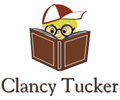

Published on July 04, 2016 15:06
July 3, 2016
4 July 2016 - ANGLO-SAXON ISLAND FOUND
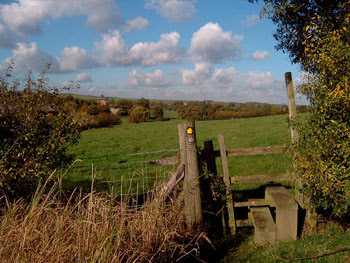
ANGLO-SAXON ISLAND FOUND
G'day folks,
British archaeologists have discovered evidence of a previously unknown Anglo-Saxon island hidden beneath a barley field, a find they tout as one of the country’s most important in decades.
In 2011 Graham Vickers was scouring a barley field outside the quiet English village of Little Carlton with his metal detector when he found a medieval writing implement buried in the freshly ploughed soil. Although the ornate silver stylus had lain silently below the surface for more than 1,200 years, it turned out that it had one more extraordinary story left to write since the relic has led archaeologists to discover a long-lost Anglo-Saxon island that was once a bustling center of international trade and a crossroads of civilizations from across northwest Europe hidden underneath the otherwise ordinary-looking field.
After Vickers reported his intriguing find to the government-funded Portable Antiquities Scheme, which encourages the voluntary reporting of archaeological objects unearthed by the public in England and Wales, further investigation revealed a trove of Anglo-Saxon relics—21 styli used to inscribe wax tablets, approximately 300 dress pins and a horde of coins dating from the 7th and 8th centuries.
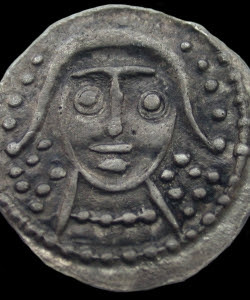
University of Sheffield archaeologist Hugh Willmott examined the bounty of artifacts harvested from the barley field, and once he saw the solid silver stylus that Vickers initially detected, he knew that the Anglo-Saxon settlement hidden underground was far from typical. “That’s because a writing implement like this is a very high-status object,” Willmott said in a statement on the university’s Facebook page. “We can conclude from it that this site isn’t an ordinary village—it’s a monastic site or a secular elite site for controlling trade and exchange.”
Further clues about the history of the medieval community came from over 100 coins, called sceattas, that were used at high-status trading sites across northwest Europe. “It also tells us about local context,” Willmott said. “We’ve got elites minting a currency, wanting to control resources.” University of Sheffield students who dug nine evaluation trenches to further study the site found significant quantities of Middle Saxon pottery and butchered animal bones.
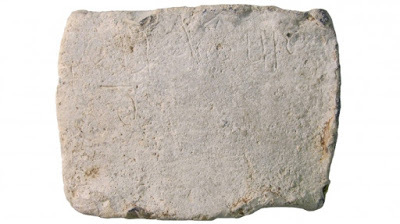
Willmott said the most exciting find for him was a small lead tablet with faintly scrawled letters that spelled “Cudberg,” a common female name in the Middle Saxon period. “This object is all that survives of this individual,” the archaeologist said. “When you’re holding this bit of lead, you’re holding the one surviving element of that human being. I’ve never seen anything like it, and it’s really very special.”
Along with University of Sheffield doctoral student Pete Townend, Willmott conducted targeted geophysical and magnetometry surveys of the site. Using the collected data, the archaeologists created a computer model to visualize the landscape as it was around 750 A.D. The farmland near Little Carlton has been dry for centuries after being drained 300 years ago, but by digitally raising water levels three feet to their early medieval heights, the researchers discovered that the barley field, now encircled by dry land, had once been an island ringed by a channel of the River Lud that provided access to the North Sea, located five miles away.
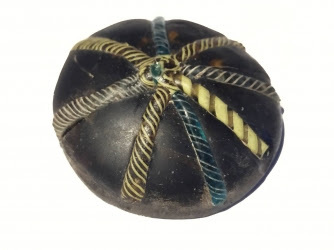
Although the archaeologists note their investigation is still in its early stages, they theorize that the island, which measured 220 yards by 275 yards, was once home to a monastery or a center of international trade. The presence of coins from various parts of mainland Europe offered evidence of commerce with Germany, Scandinavia and the Low Countries. Loom weights unearthed by archaeologists indicated that the Anglo-Saxons may have exported woven textiles while importing pottery and wine. Home to approximately 200 inhabitants, the Middle Saxon settlement in the kingdom of Lindsey, which later became part of Northumbria, may have thrived for a few hundred years until its abandonment around the time when the Vikings began to pillage the British Isles.
The original discovery by Vickers was kept quiet until now in order to allow archaeologists to conduct their studies, but the details of what Willmott calls Britain’s most important archaeological find in decades have now been reported in the most recent edition of the British publication Current Archaeology. “Our findings have demonstrated that this is a site of international importance,” Willmott said, “but its discovery and initial interpretation has only been possible through engaging with a responsible local metal detectorist.”
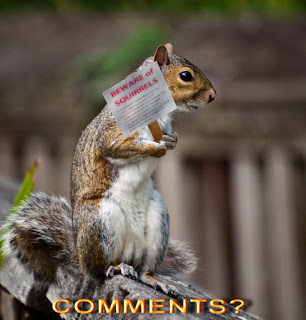
Clancy's comment: Wow, it would be amazing to discover something ancient.
I'm ...
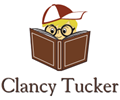

Published on July 03, 2016 15:00
July 2, 2016
3 July 2016 - FACTS ABOUT ROSES
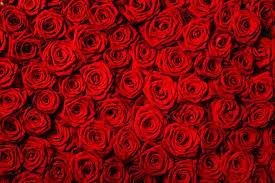
FACTS ABOUT ROSES
G'day folks,
Everyone loves roses, but here are some facts that you may not know. It is no secret that a rose is a very luxurious flower. However …
1) A fossil is not necessarily an animal or even a dinosaur. A rose fossil was found in Colorado in the age of about 35 million years. Maybe they should call it a vintage rose?
2) In nature, the genus Rosa has some 150 species spread throughout the Northern Hemisphere, from Holland to Mexico and North Africa.

3) Although roses can come in a wide variety of colours, a “black rose” is not actually black. It is actually a very dark red.
4) More than 54 percent of the land in Ecuador is filled with roses and Zambia surpasses this with more than 80 percent of land in Zambia being dominated with rose cultivation. This is also managed due to the universal rose industry providing a source of income.

5) Roses can survive for extremely long periods of time. For example, a large rose bush covers the wall of the Cathedral of Hildesheim in Germany and has done for over 1000 years.
6) The rose family was very significant to Romans as they would use them as room decorations, or even wear them on string around their neck and anything which was said “under the rose” was deemed to be a secret.
7) Reiterating the luxury of roses; in the middle ages, rose petals and rose oils were added to the baths of the rich and famous.
8) Different coloured roses are used to convey different feeling of passion and emotion. For instance, red roses are used to show the people’s romance, love, and passion. However, if you want to show empathy, happiness, and familiar love, you can give yellow roses. To deliver the poetic romance and gentleness, delicate pink roses are used.
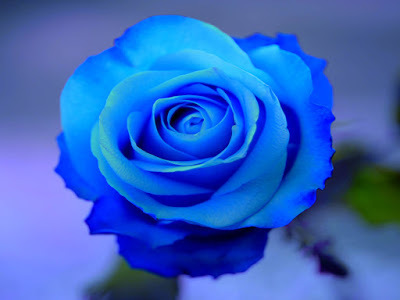
9) A breed of multicolored roses are said to be the most expensive roses in the world. A single “Happy Rose” rose costs around £25.00. However, they are pretty special.
10) During the fifteenth century, the rose developed its name the “War of the Roses”. The white rose symbolised Yorkshire and the red rose branded Lancaster. The roses were used as a symbol for the factions fighting to control England.
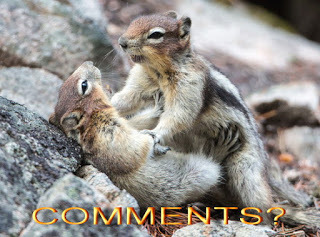
Clancy's comment: Wow. What a sensational flower. Some of the best I have ever seen were grown in Chiang Mai, Northern Thailand.
I'm ...
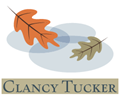

Published on July 02, 2016 14:06
July 1, 2016
2 July 2016 - ALEXANDER McCALL SMITH
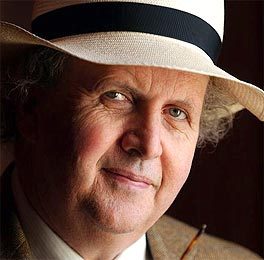
ALEXANDER McCALL SMITH
G'day folks,
Here is another great achiever. R. Alexander "Sandy" McCall Smith, CBE, FRSE, is a British writer and Emeritus Professor of Medical Law at the University of Edinburgh.
Alexander McCall Smith was born on 24th August 1948 in Zimbabwe. His father was a scholar in the British colony and his mother wrote a number of unpublished manuscripts. He is the youngest of the four children and spent his early childhood in the African country. He is a Rhodesian born Scottish writer. He was educated both in Zimbabwe and in Scotland and then went to Christian Brother’s College before going to Scotland where he studied law and got himself enrolled in the University of Edinburgh, consequently receiving his PhD degree. He taught Medical law at the University of Edinburgh at one time, and is now Emeritus Professor at its School of Law. He has been a professor in various other universities in Italy and the U.S. He married Elizabeth Parry, a physician with whom he has two children, Emily and Lucy.
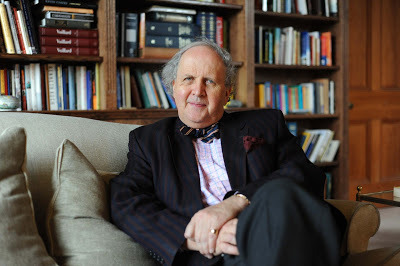
While teaching, he participated in a literary competition, which was divided into categories of children and adults. He won the children’s competition and published 30 books in the 1980′s and 1990′s. Although he is best known as an expert on medical ethics, he rose to success with his book series The No.1 Ladies Detective Agency. He has published more than fifty books, the best being The No. 1 Ladies Detective Agencyseries, The Sunday Philosophy Club, 44 Scotland Street, Portuguese Irregular Verbs, and Corduroy Mansions, which have gained a huge name in many continents around the world.
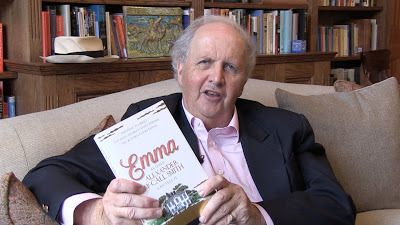
Corduroy Mansionsbecame extremely popular and has been translated into many languages. It made the New York Times best seller and was voted one of the International Books of the Year and the Millennium by the Times Literary Supplement. The book’s status in the United States was quite unexpected considering its moderate humor and focus on human nature. It was also adapted as a television series and broadcasted on BBC in 2008.
Until 2002, he held the position of Chairman at the British Medical Journal Ethics Committee and the Vice-Chairman of the Human Genetics Commission in United Kingdom.
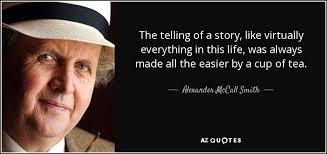
He has also been a member of the UNESCO’s International Bioethics Commission. In 2004, he was awarded the British Book Award’s Author of the Year and Booksellers Association Author of the Year. His humanitarian work also includes; contributing an inspiring new story to What You Wish For, a special charitable anthology about wishes. His genre includes short stories on children, fiction and nonfiction, which are extremely diverse. In 2009, he donated his story Still Life to Oxfam’s “Ox-Tales”project, which is an amalgamation of stories by 38 authors.
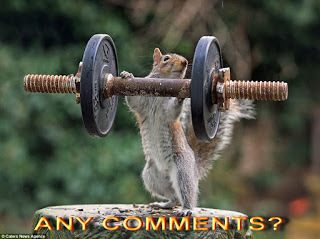
Clancy's comment: Another interesting man with so many talents. Today, is election day in Australia. Hence, the photograph below.
I'm ...


Published on July 01, 2016 15:52
June 30, 2016
1 July 2016 - DIANE MERRILL WIGGINGTON - Guest Author
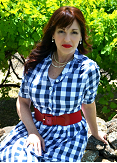
DIANE MERRILL WIGGINGTON- Guest Author -
G'day folks,
Today, I interview an aspiring author from Sacramento, California.
Welcome, Diane ...
1. TELL US A LITTLE ABOUT YOURSELF AND YOUR WRITING JOURNEY. I am 53 years young as of this last March. My husband and I married 18 years ago and combined our families and had a child of our own, giving us 6 kids. We also have 5 grandkids that we don’t see enough of. We moved to the Sacramento area in 2001, from San Diego. We have a 5 acre farm in the small rural town of Herald, California. I raise a few goats and have an orchard of fruit and nut trees and grape vines. We love it here. It is so peaceful, you can hear the frogs and crickets at night and the stars are so bright, it really is incredible. I am blessed.
2. WHEN AND HOW DID YOU BECOME A WRITER?I have been writing poems and short stories for my own enjoyment for years, so I decided to take a writing class some 10 year back and really enjoyed it. But like most people my life was so busy that I didn’t do anything with it. Just after my 50th birthday, 3 years ago I decided to see if I had what it took to actually write a book. So I sat down one day and just started writing a love story about 2 very strong willed people who fall madly in love, but must overcome a few obstacles to be together. Six months later, I had written my first novel, Angelina’s Secret. It felt incredible to tell a story with my words. Then I went about with re-writing and showing it to a few people and they loved it. That’s when I decided to publish the story.
3. WHAT TYPE OF PREPARATION DO YOU DO FOR A MANUSCRIPT? DO YOU PLAN EVERYTHING FIRST OR JUST SHOOT FROM THE HIP?I usually shoot from the hip and allow myself to daydream about my charters and what they might look and act like. Don’t get me wrong, I understand about the process of making an outline, but I like to be surprised, just like the reader. The unexpected is much more fun when you let it flow. So far that has been my process. I do have an idea for a young adult manuscript that I have already completed an outline for. So basically I have used both methods.
4. WHAT DO YOU ENJOY MOST ABOUT BEING A WRITER?Finding my voice. When I was younger, I hadn’t yet found a voice to express myself with. Now that I am mature, (Old) I can speak from a different place that I wasn’t able to when I was younger. Fear of failure or just not being good enough held me back. I have always been fascinated by people who could tell a story that others were interested in reading and know I get to do that, tell a story in my words that other’s say, “Wow, I loved your story.” It feels very rewarding and empowering.
5. WHAT IS THE HARDEST THING ABOUT BEING A WRITER?Finding a free moment to write. I work full time and have a family and a farm. In fact, if I listed everything that was expected to do on a daily or even weekly basis, you would probably ask me when I found the time to write. And yet, I love it so much that I have written 2 novels, I’m working on the 3rd novel in my series and have written a children’s book that I am working with an artist to illustrate and I have completed an outline for a young adult book.
6. WHAT WERE YOU IN A PAST LIFE, BEFORE YOU BECAME A WRITER?I was a registered dental assistant for 16 years, before I retired 18 years ago to be a full time mom to my youngest son. When we moved to Sacramento, I started a day-care in my home to give myself something to do with myself. I can’t stand to be idle. So now I watch children and write when they go down for naps or go home. It really is a hectic life. But I wouldn’t change it for the world.
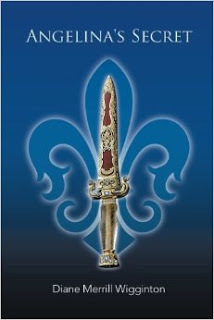
7. WHAT IS YOUR GREATEST WRITING ACHIEVEMENT?I don’t believe I have achieved it yet. I am shouting for the moon and have put it out in the universe that I hope to take my series to the small screen and make a mini-series out of them. “Angelina’s Secret, Isabella’s Heart and Olivia’s Promise,”
8. WHAT ARE YOU WORKING ON AT THE MOMENT?I am working on the 3rd book Olivia’s Promise, a children’s book and a YA novel.
9. WHAT INSPIRES YOU?Life and the beauty that is in the unexpected, simple moments of it.
10. WHAT GENRE DO YOU WRITE?Historic Romance, Children’s, YA Romance. I am all over the place.
11. DO YOU HAVE ANY TIPS FOR NEW WRITERS?Be true to yourself and write about what you would enjoy reading and find your own voice and not that of someone else’s.
12. DO YOU SUFFER FROM WRITER’S BLOCK?If I do run into that problem and it can’t be cured by a hot bath or a good night’s rest, I put it away for a week or two and them come back at it with fresh eyes. It never fails to come to me if I allow my imagination to roam free for a while.
13. DO YOU HAVE A PREFERRED WRITING SCHEDULE?Yes. Whenever I can find a quiet moment to myself without someone asking me to do something for them. It never fails, I sit down with a good idea in my head, already for a good session of writing and someone walks in and asks for something. I have taken up, writing things down in a note book and then coming back later and putting all the ideas together.
14. DO YOU HAVE A FAVOURITE WRITING PLACE?My kitchen table or sitting on the couch. But mostly the kitchen table.
15. WHAT IS YOUR GREATEST JOY IN WRITING?I love the whole creative process of making something out of nothing. Initially you have a blank canvas and then, like magic a story appears out of your imagination. The words come to life before your eyes. 16. WHO IS YOUR FAVOURITE AUTHOR AND WHY?I love Diana Gibaldon. Her Outlander’s series was incredible and 20 years after reading her books, she has turned the series into a mini-series. I just love that and I am hopeful that one day I might be as lucky as her.
17. WHAT’S THE GREATEST COMPLIMENT YOU EVER RECEIVED FROM A READER?Someone I knew stopped me in the store to tell me that she had read my book and loved it. Then she asked me when the next one was coming out. It was just very satisfying to know that someone got pleasure from something I wrote.
18. WHAT WAS THE WORST COMMENT FROM A READER?I had some issues with the editing the first time out. I had paid to have the first book professionally edited and they had botched the job. Boy was that embarrassing! A word to the wise, always get your book edited and then have someone you know and trust go over the manuscript with a fine tooth comb before you release you book.Needless to say, there were some harsh comments out there.
19. WRITERS ARE SOMETIMES INFLUENCED BY THINGS THAT HAPPEN IN THEIR OWN LIVES. ARE YOU?I lost my brother and father, eleven months apart, in 2011. My brother was thirteen months older than me. He died from complications of pneumonia in January, and then my father found out at the end of October that he had cancer. He passed away a few months later, at the beginning of December. I was brought down to a very low point in my life, but that tragedy was also the catalyst that made me realize that life was short and you never know what is in store for you at any given moment. It is better to live every day to the fullest and do the things that you have been putting off, waiting for that right moment to accomplish your dreams. Put the effort into achieving your dreams today, because your tomorrow is not guaranteed.
20. OTHER THAN WRITING, WHAT ELSE DO YOU LOVE?I love to travel and see new things and meet new people. I have always found people to be interesting and let’s face it, everyone is unique and different. Everyone has a story to tell and they are happy to tell it, if you are willing to listen.
21. DID YOU HAVE YOUR BOOK / BOOKS PROFESSIONALLY EDITED BEFORE PUBLICATION?Yes, and no. I had my first book professionally edited, but they were not really very good and they botched it badly. The second book, I paid someone who was a teacher, take a look and edit it. I believe she did a great job.
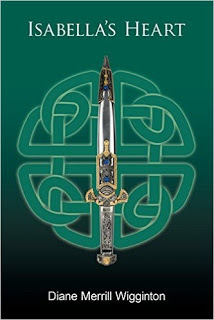
22. DESCRIBE YOUR PERFECT DAY.Sunny and warm, with a slight ocean breeze blowing off the water of a tropical beach. I love the ocean, with sandy beaches and warm waters. But then I also love the sunsets from my backyard, when the sky turns orange, pink and purple all at the same time and the breeze blows nice and cool, off of the delta and the trees gently swaying in the evening, during the summer time.
23. IF YOU WERE STUCK ON A DESERT ISLAND WITH ONE PERSON, WHO WOULD IT BE? WHY?Bear Grylls. Have you seen his shows? If anyone could survive a deserted island, he could. It would be like Swiss Family Robinson’s, with tree forts and ingenious contraptions to catch food and start fires. I just think that he would be an interesting person to talk to and learn from.
24. WHAT ARE YOUR PLANS FOR THE FUTURE?Write more books, tell great stories and enjoy my husband and being alone for a couple of years. Our youngest son is turning 18 this November and he is planning to serve a mission and then go off to college after that. We have spent so many years raising kids that I think it will be nice getting to travel and spend time with my significant other. There is a lot of things we have put off doing because of our children. We plan to travel and see the United States and maybe lay on a few sandy beaches.
25. WHAT ARE YOUR VIEWS ON BOOK TRAILERS? DO THEY SELL BOOKS?I think that they are interesting, but they don’t necessarily sell books. Book covers sell books. Let’s face it, if the cover doesn’t look interesting, you won’t bother to pick it up and turn it over. And if you don’t pick the book up and turn it over, you will never really know if you are interested in reading it. The biggest hurdle is name recognition and getting a book in a person’s hands. If they like the cover and the feel of the book in their hands, chances are they will read the book.
26. DO YOU SEE YOURSELF IN ANY OF YOUR CHARACTERS?I like strong female characters for a reason, that is because I have jumped a lot of hurdles and overcome a lot of obstacles to become a strong woman myself. So yes and no. My characters start out strong and fierce, while it took me many years to become strong and fierce.
27. DOES THE PUBLISHING INDUSTRY FRUSTRATE YOU?Yes, because it isn’t easy to figure out who is legit and who is just trying to take your money. I have been learning on the job as they say and sometimes I have asked the wrong person for advice and been taken advantage of. I would love to get my books out there in large numbers, at box stores, grocery stores and airports. But the fact is, it is hard to get those connections unless you are well connected.
28. DID YOU EVER THINK OF QUITTING?Not an option for me. I have a dream and I will keep going until I have achieved that dream.
29. WHAT WAS YOUR FAVOURITE MANUSCRIPT TO WRITE? WHY?I will always be attached to the first one because it played out like a movie in my head. It was up to me to express in writing the emotions and feelings I was seeing. It was an amazing feeling to put it down on paper.
30. HOW WOULD YOU DEFINE ‘SUCCESS’ AS A WRITER. I would say that simply creating and moving forward with the process is success. But my definition of success will come when I see my books on store shelves and I don’t have to beg stores to give me a slot to do book signings, but instead, they call and invite me to come to their stores for book unveilings.
31. WHAT SHOULD READERS WALK AWAY FROM YOUR BOOKS KNOWING? HOW SHOULD THEY FEEL?I want the reader to get lost in the story and the fantasy of the book. I want them to forget about their everyday lives and forget their problems and just be immersed in the entire book. I want them to feel the emotions of the characters and cry with them, laugh with them, love with them.
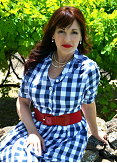
32. WOULD YOU LIKE TO HAVE YOUR BOOKS MADE INTO MOVIES? EVER WRITTEN A SCREENPLAY?I would love to turn my series into a movie or mini-series, that is a dream of mine. I have never written a screenplay.
33. HOW MUCH THOUGHT GOES INTO DESIGNING A BOOK COVER?The cover is important and should be well thought out, because a person will never pick up a book, if they are not interested in the cover.
34. WHAT’S YOUR ULTIMATE DREAM?The ultimate dream to me would be to get lucky and have someone in Hollywood read my series and think, “Hey that would make a great movie.”
35. WRITING IS ONE THING. WHAT ABOUT MARKETING YOU, YOUR BOOKS AND YOUR BRAND? ANY THOUGHTS?I wish that I was a marketing expert and that I knew what I was doing when it came to that sort of thing, but I’m not and I don’t, so I fall a little short in that department.
36. ARE YOUR BOOKS SELF-PUBLISHED?My books are self-published at this point, but I am not averse to getting a publisher who knows the business better than me, who would be willing to work with me.
37. DESCRIBE YOURSELF IN FIVE WORDS.Strong, determined, dreamer, optimistic and non-judgmental. Strong because I’ve had to be. Before you can realize your dreams, the universe will test your resolve to determine at which point you will give up. So, this is where the determination comes in. I am determined to leave my mark on this world. I want my posterity to know that I was here. Once you have passed the test of not giving up on your heart’s desire, you are ready to fulfil your real purpose… the thing in life that really moves your heart. That is where the dreamer comes in. I’ve given myself permission to dream of the life that I want to live. It has taken me many years to get to this stage in my life, and now that I am here, I find it very liberating. An optimistic outlook is not always easy to pull off, but it is important to succeed in life. It doesn’t matter how many times you fall down or get rejected, it only matters how many times you stand up again and keep going down the path to your dreams. I try to look at others and understand that they have travelled a different road then me. That their life experiences have been different and therefore, do not deserve my judgment. Life can be hard enough, without others judging you harshly.
38. WHAT PISSES YOU OFF MOST?Rude people who hope for others to fail and Bullies.
39. WHAT IS THE TITLE OF THE LAST BOOK YOU READ? GOOD ONE?Scarlet Widow by Graham Masterton. I enjoyed the way he built up a sense of mystery and drew me into the story. I couldn’t wait to get back to reading the story.
40. WHAT WOULD BE THE VERY LAST SENTENCE YOU’D WRITE?Brody stepped up and threw a shovel full of dirt upon his father’s casket and then handed the shovel to me. I took may turn and passed the shovel to Quinton. Each person in turn, stood in line to pay their respects and shovel a small amount of dirt upon the casket before returning to their carriage and making the drive back to the Rosewood Plantation. 41. WHAT WOULD MAKE YOU HAPPIER THAN YOU ARE NOW? CARE TO SHARE?That would be difficult to say, because I am pretty happy right now. I would have to say that selling more books would thrill me to death and having my name out there would be wonderful.
42. ANYTHING YOU’D LIKE TO ADD?I would just like to encourage people to follow their dream and do what makes them happiest. It doesn’t always pay the bills, but that is what having a job is for, right. Otherwise we are all walking around on this planet, merely existing instead of really living. And life was meant to be lived to its fullest and enjoyed.

Youtube link http://youtu.be/80HYscnyaVI
Amazon Author Page https://www.amazon.com/author/dianemerrillwigginton
Book Facebook page https://www.facebook.com/AngelinasSecretBook

Clancy's comment: Go, Diane. Good luck!
I'm ...


Published on June 30, 2016 15:07
June 29, 2016
30 June 2016 - WISDOM OF STEVE JOBS

WISDOM OF STEVE JOBS
G'day folks,
Here is one man I always had time for. Sadly, he isn't with us any more, but he left us some great thoughts.


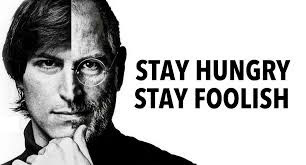
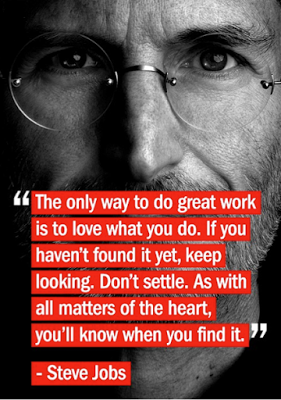

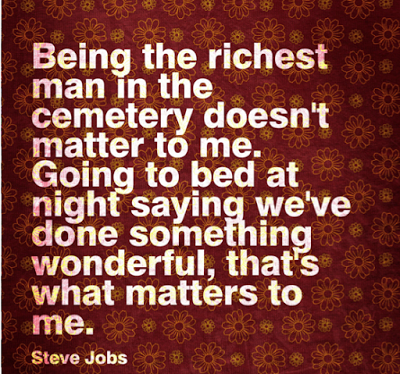

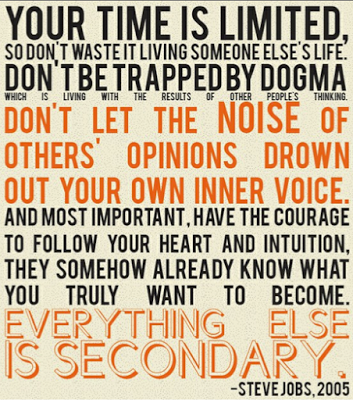

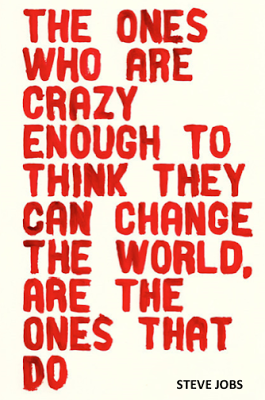
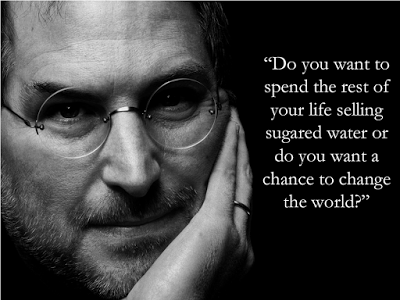
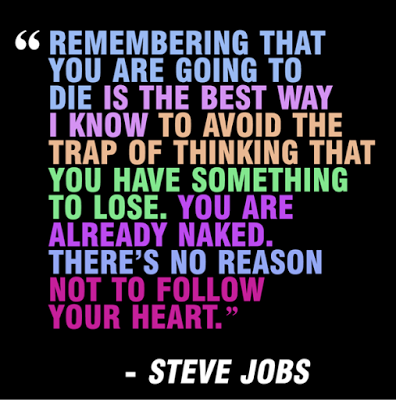
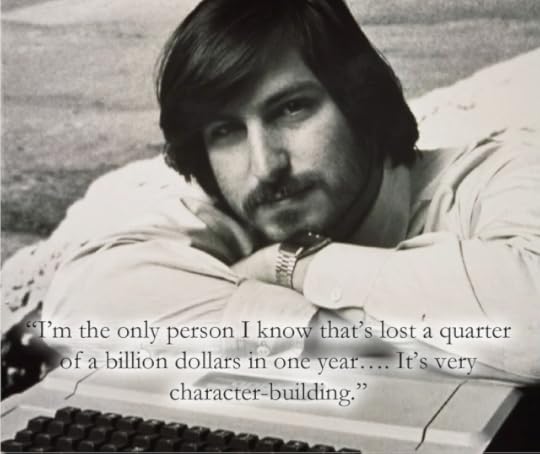
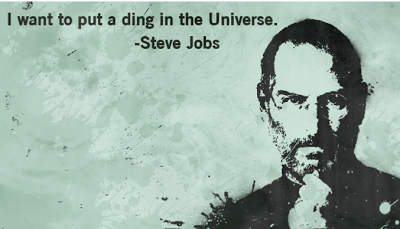

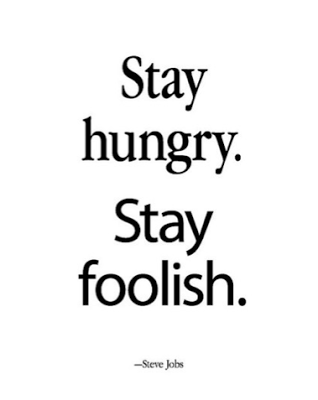

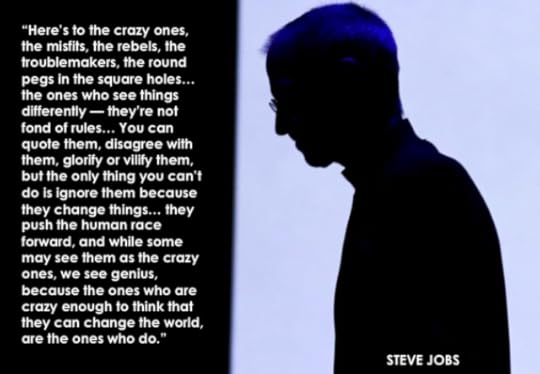
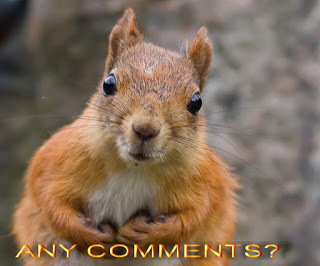
Clancy's comment: Loved ya work, Steve. 'Stay hungry, stay foolish' inspires me as a writer to always retain my own voice.
I'm ...



Rest in peace
Published on June 29, 2016 15:22
June 28, 2016
29 June 2016 - HELENA RUBINSTEIN
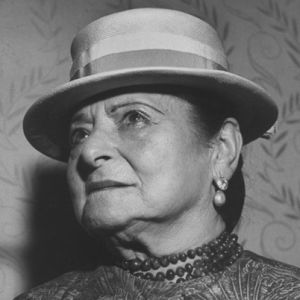
HELENA RUBINSTEIN
G'day folks,
I bet you have heard of this woman. Helena Rubinstein was a Polish American business magnate. A cosmetics entrepreneur, she was the founder and eponym of Helena Rubinstein Incorporated cosmetics company, which made her one of the world's richest women.
Synopsis
Helena Rubinstein was an entrepreneur and philanthropist born on December 25, 1872, in Krakow, Poland. In 1902, she started her business career in Australia distributing a beauty cream that her mother had used. She soon founded a beauty salon and manufactured cosmetics, working hard to expand her business at every turn. Rubinstein opened salons in London and Paris, and when World War I began she moved to America. Her beauty business grew into a worldwide cosmetics empire, and she eventually created the Helena Rubinstein Foundation in 1953 to fund organizations for children's health. She died on April 1, 1965, in New York City.
Early Years
Helena Rubinstein was born in Krakow, Poland, on December 25, 1870. While her father was strict, her mother took a unique approach with raising her eight daughters: She told them they would wield influence in the world through the powers of beauty and love. To this end, her mother even made her own beauty creams.
As the oldest child, Helena helped her father with bookkeeping, and her intelligence led him to insist she study the medical sciences. She liked the lab work but was averse to being in a hospital, and she was allowed to end her studies as long as she agreed to marry. Her choice, however, was not the 35-year-old widower her father picked out but a fellow student from the University of Krakow.
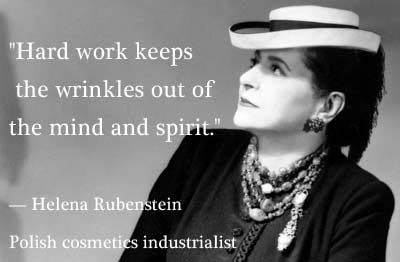
Business Begins in Australia
Rubinstein’s father disapproved of her choice in a husband, so she packed up and moved from her native Poland to live with her uncle in Australia. She brought along a dozen bottles of her mother’s beauty cream, made from combinations of herbs, almonds and Carpathian fir tree extract. The creams were a hit with regional women and Rubinstein gave the products away until her mother had to send more.
While working odd jobs, and with financial support of a woman whose skin had seen the benefits of the cream, Rubinstein soon began selling her products. Before long she had her own shop in Melbourne. There she met Polish-American journalist Edward William Titus, and the pair married in July 1908 in London. Working 18-hour days, Rubinstein turned a profit in her beauty business, and in 1905 she headed to Europe to study advances in skin treatments. When she returned, she started bringing over her sisters to help with the business and also brought to Australia Dr. Jacob Lykusky, the man who gave Rubinstein’s mother her cream formulas, to help create more beauty products.
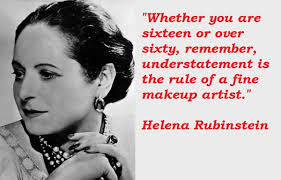
Building the Empire
In 1908, Rubinstein headed to London with £100,000 to invest in her business, and in less than a year she had opened Helena Rubinstein's Salon de Beauté Valaze. She soon bought a Paris salon and installed her sister Pauline to run it. The only thing that slowed Rubinstein down was when she was pregnant and gave birth to two sons in 1909 and 1912. Rubinstein then opened a New York salon in 1916. Salons in San Francisco, Boston, Philadelphia, Chicago and Toronto followed, as did sales of her products in department stores.
The 1920s found Rubinstein in Hollywood, teaching starlets how to properly apply makeup. Back in New York, she had a heated rivalry with both Elizabeth Ardenand Charles Revson, founder of Revlon, and in 1928 Rubinstein sold her American business to Lehman Brothers. (She re-bought it cheaply soon after however, as the subsequent stock market crash made the business available at a huge discount.)
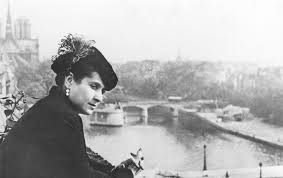
Rubinstein and Titus divorced in 1937, and the following summer she married Russian prince Artchil Gourielli-Tchkonia, who was 20 years younger. A lifelong advocate for healthy living and self-care, Rubinstein died in New York City on April 1, 1965, at age 94. A year later, her autobiography, My Life for Beauty, was published.
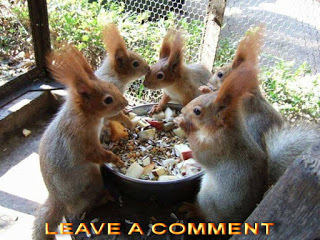
Clancy's comment: Always impressed by women who were ahead of their time.
I'm ...
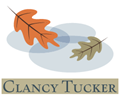

Published on June 28, 2016 14:28
June 27, 2016
28 June 2016 - MEASLES

MEASLES
G'day folks,
Here are some facts about a disease that has caused havoc over the years, especially for kids. Measles is a contagious viral illness that causes a skin rash and fever. Serious and sometimes fatal complications include pneumonia and encephalitis (brain inflammation). Measles is also known as rubeola, not to be confused with rubella (German measles). Worldwide, measles is the fifth highest cause of illness and death in children.
Measles is rare in Australia because of the widespread use of the measles vaccine. It is important to continue immunising children in Australia, because there is a risk that the infection can be brought in by people arriving or returning from overseas.
Symptoms of measles
The signs and symptoms of measles may include:
fevergeneral discomfort, illness or lack of wellbeing (malaise)runny nosedry coughsore and red eyes (conjunctivitis)red and bluish spots inside the mouth (Koplik’s spots)red and blotchy skin rash that appears first on the face and hairline, and then spreads to the body.
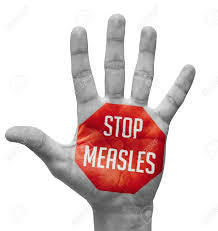
Complications of measles
Possible complications of measles include:
otitis media – inflammation of the middle eardiarrhoea and vomiting – may cause further complications such as dehydrationrespiratory infections – such as bronchitis, croup or laryngitispneumonia – a type of lung inflammation that causes about 60 per cent of measles deathspregnancy problems – if a pregnant woman contracts measles, she risks miscarriage or premature labourencephalitis – or brain inflammation, affects about one person with measles in every 1000. About 10 to 15 per cent of people with encephalitis die and 15 to 40 per cent of survivors have permanent brain damage to varying degreessubacute sclerosing panencephalitis (SSPE) – occurs in about one in every 100,000 cases of measles. SSPE is an extremely rare progressive inflammation of the brain that causes brain degeneration and is always fatal. SSPE usually begins about seven years after the measles infection.
Causes of measles
Measles is most commonly spread when someone swallows or inhales the cough or sneeze droplets from an infected person. The measles viruses are carried inside mucus or saliva droplets and remain alive for several hours. Infection can also occur if someone touches contaminated surfaces or objects and then touches their own mouth or nose or eats before washing their hands. Symptoms usually occur about 10 to 12 days after infection.
Measles is very contagious. Estimates suggest that a person with measles will infect about nine in every 10 people they have contact with who have not been immunised or previously infected with measles.
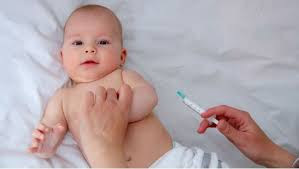
High-risk groups
Measles is rare in Australia because of the immunisation program, but cases still occur. Anyone who hasn’t been immunised, particularly children and healthcare workers, are at high risk of infection.
People who are at increased risk of potentially fatal measles complications include:
anyone with a chronic illnesschildren younger than five yearsadults.
Treatment for measles
A case of measles without complications usually lasts about 14 days and most people make a full recovery. Antibiotics don’t work because the illness is viral. Treatment aims to ease symptoms and reduce the risk of complications. Options may include:
bed restplenty of fluidsparacetamol to reduce pain and feverisolation to reduce the risk of transmission.
Occasionally, measles develops into a serious disease that requires urgent treatment and can even be life threatening. Sometimes, people can die from complications even if they receive prompt medical attention.
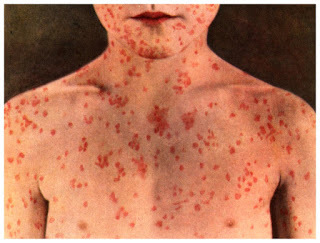
Treatment depends on the complication but may include:
hospitalisationsupportive care – for example, to maintain hydration, and to check for fever and infectionantibiotics – to treat bacterial infection.
Contact with someone with measles
If you’ve been in contact with someone with measles and you are not immune to measles (have not been immunised or have not had a measles infection), there are different treatment options. Speak with your doctor about your options.
Depending on your situation, these may include:
Contact in the last 72 hours – have a measles immunisation immediately.Contact in the last three to seven days – immunoglobulin can be given for interim protection. This is known as passive immunisation. Measles vaccination, or active immunisation, should be given later to prevent further risk of infection, but not until five months after you received the immunoglobulin. Normal human immunoglobulin is given as an injection.
Immunisation against measles
Immunisation is the best protection against measles. A person who receives the recommended two doses of a measles vaccine has 99 per cent immunity against measles infection. If you have been infected with measles, you will usually have lifelong immunity.
There are two types of measles vaccine. In the first type, the vaccine is a combined measles, mumps and rubella (German measles) vaccine and is commonly known as the MMR vaccine. In the second type (available from July 2013), the vaccine is a combined measles, mumps, rubella and varicella (chickenpox) vaccine and is commonly known as the MMRV vaccine.
Protection against measles is available under the National Immunisation Program Schedule. In Victoria, immunisation against measles is free of charge for:
Children at 12 months – the first dose of measles vaccine is given as the MMR combination vaccine.Children at 18 months of age – the second dose of measles vaccine is given as the MMRV combination vaccine.All children younger than 10 years of age can receive the free National Immunisation Program vaccines. Young people 10 to 19 years of age, of families who currently receive family assistance payments between 1 January 2016 to 31 December 2017 can receive the free National Immunisation Program vaccines.Children up to and including nine years – catch-up immunisations are available for children who have not been fully immunised.Women planning pregnancy or after the birth of their child – two doses of MMR are available for women who have low immunity or no immunity to rubella.Aboriginal and Torres Strait Islander people, refugees and asylum seekers and vulnerable people – catch-up immunisations are available for people who have not been fully vaccinated.
Immunisation is also recommended for adults born during or since 1966, unless you have evidence of having received two doses of MMR. If you have not received the vaccine, ask your doctor about catch-up doses. The MMRV vaccine is not recommended for people aged 14 years and over.
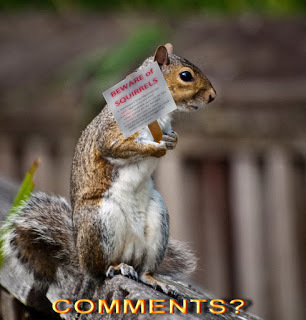
Clancy's comment: No doubt all of you have had it at some stage. I have, but can't remember. I do however recall having viral menengitis though.
I'm ...
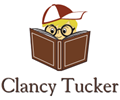

Published on June 27, 2016 14:45
June 26, 2016
27 June 2016 - GALLIPOLI
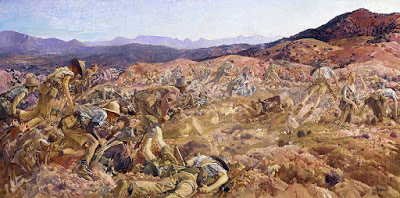
GALLIPOLI
G'day folks,
This is a place well known to all Australians, and what happened there is acknowledged every Anzac Day.
On the 25th of April 1915, the British landed Australian soldiers at Gallipoli as part of an offensive against the Turkish control of the Dardanelles. Quite stupidly, they landed the Diggers not on an open plain but on scrub-covered hills. The Turks were dug in from elevated positions and mowed down the Diggers as they leapt from the boats. Of the 1500 men who landed in the first wave, only 755 remained in active service at the end of the day.
Over the following nine months, more than 7,500 Australians lost their lives. The campaign was then aborted and victory handed to the Turks. However, for reasons many people find difficult to understand, Gallipoli went on to become one of the most immortal events in Australian history.
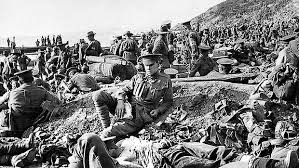
One of the people who had trouble understanding the importance of Gallipoli was ex-Prime Minister Paul Keating.In 2008, Keating announced that Gallipoli was a useless battle that was fought for British interests. Keating also declared that he had never set foot in Gallipoli and never would. According to Keating:
"Dragged into service by the imperial government in an ill-conceived and poorly executed campaign, we were cut to ribbons and dispatched -- and none of it in the defence of Australia."
Other critics have included historians Robin Prior and Trevor Wilson. In 2002, the historians ran a campaign in the Sydney Morning Herald in which they criticised the Australian celebration of Gallipoli on the grounds it, "excludes more than half the population: women, indigenous people and most ethnic groups."
The historians also stated that Australians today should have the maturity to realise that Gallipoli was a battle fought in vain.
Arguably, Keating, the historians and those who agree with them were reacting to some of the early news reports that positioned Gallipoli as a triumph of Australian nationalism. For example, war correspondent Ashmead-Bartlettwrote things such as:
“The Australians rose to the occasion. They did not wait for orders, or for the boats to reach the beach, but sprang into the sea, formed a sort of rough line, and rushed at the enemy’s trenches. Their magazines were not charged, so they just went in with the cold steel, and it was over in a minute for the Turks in the first trench had been either bayoneted or had run away, and the Maxim guns were captured.”
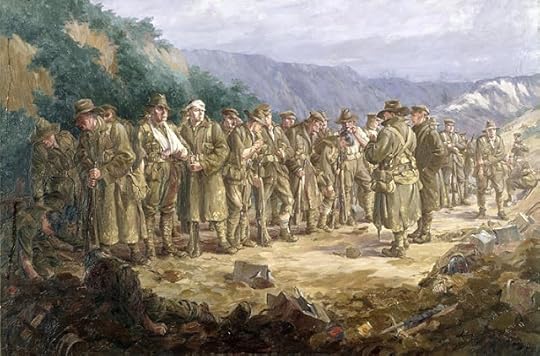
Ironically, such accounts probably damaged the very nationalistic feeling that they were intended to promote. Firstly, when the truth came out that Gallipoli was not "over in a minute", the public's faith in authorised versions of nationalism was eroded. Secondly, while soldiers often went in with "cold steel", this was because their commanding officers were more worried about losing bullets in a hopeless charge than losing lives. Consequently, they ordered that the soldiers leave the magazines behind when they went over the top. Again, the result was a loss of faith in superiors.
While critics like Keating have been unable to see past the dubious propaganda of Gallipoli, the soldiers who fought in the campaign used the realities of their experiences to build their own version of Australian nationalism and the Australian identity. Rather than be based upon soldiers obeying without question, sacrificing oneself for the commanding officer, or winning a glorious battle using bayonets alone, the Diggers' version of nationalism revolved around remembering the fallen.
This began on the 25th April 1923 at Albany in Western Australia when the Reverend White led a party of friends in what was the first ever observance of an Anzac Daydawn service. As the light was coming up, the men looked to the ocean and said a paragraph from the poem, Ode for the Fallen:
"They shall grow not old, as we that are left grow old;
Age shall not weary them, nor the years condemn.
At the going down of the sun and in the morning
We will remember them."
The poem neither attributed right or wrong nor did it glorify war as the liberator of freedom. It simply articulated what the war meant to those who were involved in it.
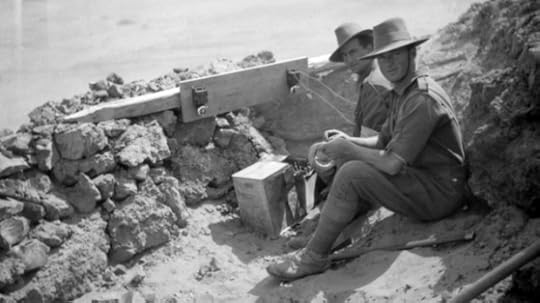
The ode was the perfect poem fo positioning Gallipoli as a remembrance of humanity. If Australians only remembered battles because they achieved a purpose, then those who died at the Gallipoli should be forgotten as they died for nothing. If Australians remembered a battle as a triumph of good over evil, then they would be imposing morality in war. In such scenarios, the fallen Diggers could be judged as dying for a immoral cause considering they were invading someone else's country. By remembering a battle that was a failure, right or wrong became irrelevant. Because the story of Gallipoli cannot be used to glorify freedom or be seen as a triumph of truth, justice and the Australian way, the story forced Australians to remember exactly what the war meant to the Diggers who fought in it.
It many ways, it was understandable that Keating wouldn't be endeared to the story of Gallipoli. The Anzac traditions that grew of it were just too human for politicians to respect, while the story itself so vividly revealed how the trusting public can be betrayed by those who were meant to protect their interests. Such politicians would prefer a more glorious battle, such as the Battle of Hamel in 1918, where Australians broke the stalemate of World War 1 with an innovative Blitzkrieg strategy. Another battle was the World War 2 battle of Kokoda, where Australians repelled a Japanese invading force. This was Keating's favourite.
While the Battle of Hamel and Kokoda definitely were more consistent with the traditional conceptions of nationalism where soldiers died in the pursuit of a great victory, Gallipoli best illustrated war in all its inhumanity, and the humanity that could spring from that. While not everyone in Australia would agree, being able to appreciate that humanity is what makes Australian’s version of nationalism superior to most other versions around the world.

Gallipoli and the Nek
One minor battle, that for the Nek, has come to symbolise the essence of the Gallipoli campaign. The Nek was a position of Turkish trenches 18 meters from those of the Australians that the British commandeers believed could be taken with four offensive raids. At 4.30 am on the 7th August 1915, the first wave of Diggers leapt from their trenches and were mown down by Turkish machine guns. The second, then third and then fourth shortly followed and met a similar fate. Within minutes, 800 Australians lay dead or wounded on a piece of ground no larger than two tennis courts. The charge was then called off.
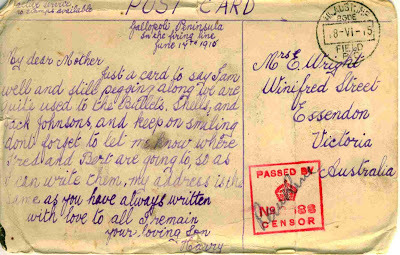
Why remember Gallipoli?
"Getting ashore was not that hard. Hanging on, up on that ridge, for eight months - that was hard. The Australians defended absurd positions. They looked after each other. They kept their good humour. There is a cheerfulness in soldiers' letters from Gallipoli one seldom comes upon in letters from France. The food was unspeakable, the flies a plague. [So were] dysentery and lice ... The miracle is simply these men didn't lose heart. And they didn't, not even when they knew all was lost and they were creeping away by night, leaving so many dead.
"That, to me, is why we are right to remember Gallipoli. We are surely right to honour them. We are surely right to walk past the political intrigues and the blunders and say Gallipoli says something good about the Australian people and the Australian spirit." Les Carlyon
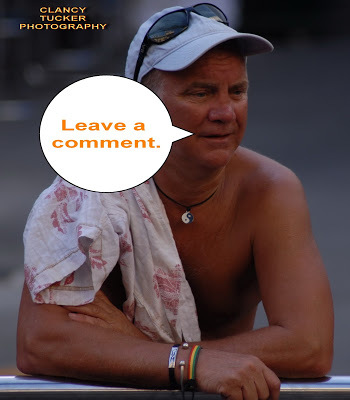
Clancy's comment: Yes, Anzac Day is a very solemn day for Australians. I've been to Gallipoli only once. At the time, I had a Turkish girlfriend. Although it was not Anzac Day, we sat on the beach of Anzac cover and paid our respects to those who battled there; our relatives.
I'm ...

Here are some shots I took this Anzac Day.
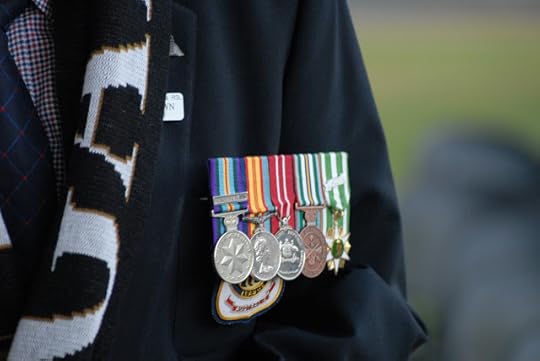


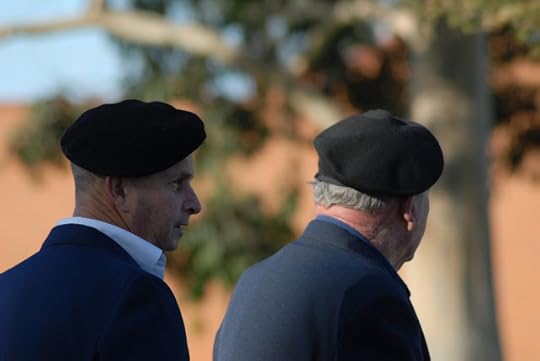

Published on June 26, 2016 14:48



